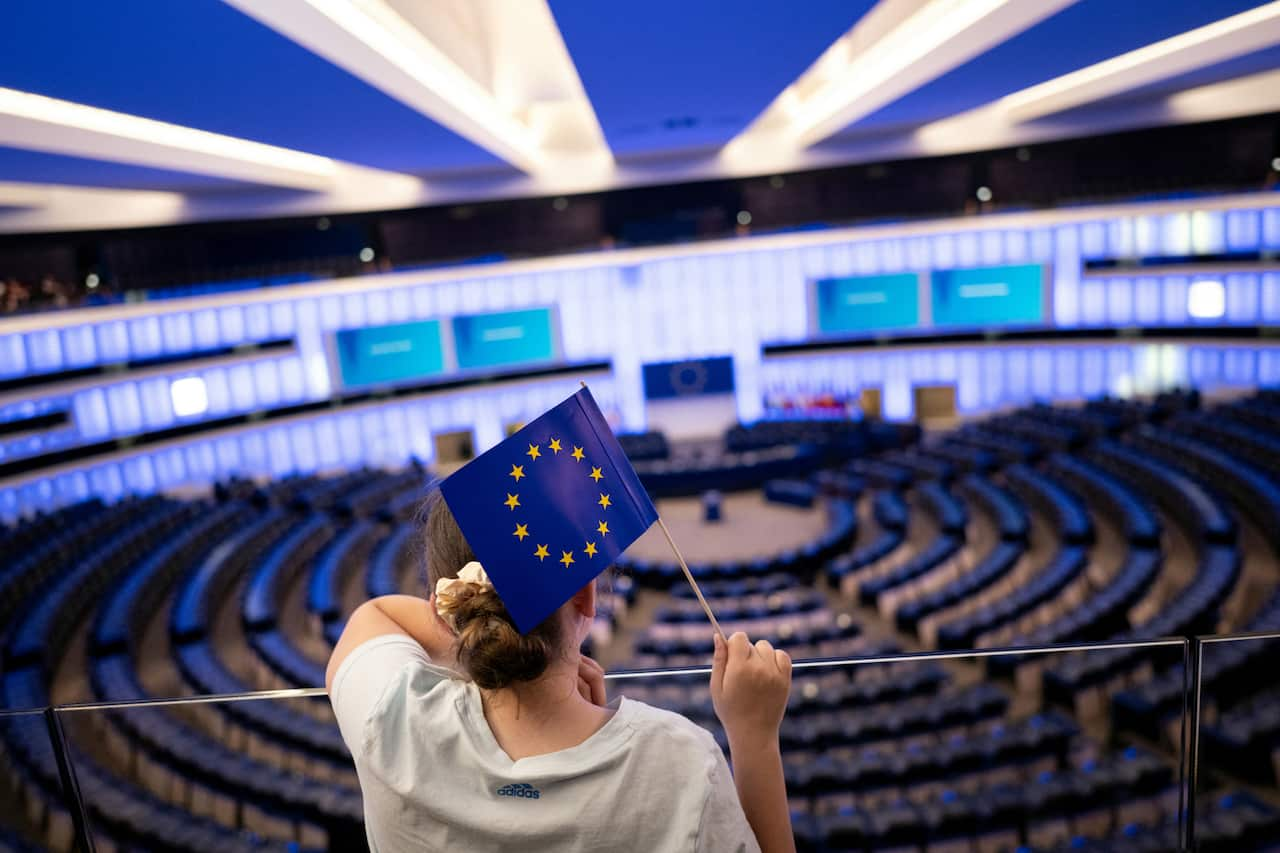Far-right parties have made major gains in European Union parliamentary elections, dealing stunning defeats to two of the bloc’s most important leaders: French President Emmanuel Macron and German Chancellor Olaf Scholz.
Populist parties also performed well in Austria, Italy and the Netherlands, where the far-right won the most recent domestic elections.
The vote is expected to cause the balance of power to shift towards the right in the 720-seat parliament that helps shape and approve legislation across the bloc.
The effect of the EU vote was seen immediately in France where President Emmanuel Macron unexpectedly called a snap parliamentary election, after his party suffered a heavy defeat at the hands of the populist National Rally party of Marine Le Pen.
How does the EU election work?
Every five years, European citizens cast their ballots for the 720 members of EU parliament.
Over 320 million people are eligible to vote — making it the second biggest democratic contest in the world — but only a fraction cast their ballots as it is not compulsory.
The European Parliament co-decides with the intergovernmental European Council on laws governing the 27-country bloc of 450 million people.
Exit polls across the European Union indicate increased support for populist parties opposing centralisation. Source: Getty / Sebastien Bozon
What do early results show?
Eurosceptic nationalist groups European Conservatives and Reformists (ECR) and Identity and Democracy (ID) and hardline conservative politicians not yet affiliated to an EU political family from the anti-immigration Alternative for Germany (AfD) party secured together 149 seats, a gain of 22, a first centralised exit poll showed.
The exit poll projected that pro-EU centre-right, centre-left, liberal and Green parties will retain a majority of 451 seats but one which is significantly slimmed down compared to their 488 in the outgoing chamber.
Europe’s Green parties in particular suffered heavy losses, dropping to 53 deputies from 71 in the outgoing parliament.
What would a shift right mean?
A shift towards the right inside the parliament may make it tougher to pass new legislation.
It may result in more EU resource sharing or cooperation to respond to security challenges, the effect of climate change or industrial competition from China and the United States.
Political observers attribute the political shift to the rise in the cost of living, concerns about migration and the cost of the green transition as well as the war in Ukraine — worries that nationalist and populist parties have seized on.
Exactly how much influence the eurosceptic nationalist parties will have will depend on their ability to overcome differences and work together.
They are currently split between two different families, and some parties and lawmakers for now lie outside these groupings.
Like Macron, German Chancellor Olaf Scholz also suffered a painful night.
The AfD party shrugged off a string of scandals to take second place behind the conservatives while Scholz’s Social Democrats scored their worst result ever.
The centralised exit poll showed the centre-right European People’s Party (EPP) will be the biggest political family in the new legislature, gaining five seats to field 181 deputies.
Does it affect EU leadership?
The EPP result is good news for EPP member Ursula von der Leyen, who seeks a second five-year term at the helm of the powerful EU executive arm.
Von der Leyen will need the backing of both EU leaders and the parliament.
However, von der Leyen may still need support from some conservative nationalists, such as Italian Prime Minister Giorgia Meloni’s Brothers of Italy to secure a parliamentary majority, giving Meloni and her European Conservative and Reformists (ECR) allies more leverage.
The Socialists and Democrats are poised to be the second biggest political family, even as they lost four lawmakers to end up with 135, the exit poll showed.
In contrast, the exit poll gave the ECR two more deputies than in the last parliament for a total of 71 and the nationalist ID group 13 more seats for a total of 62.
The number of non-affiliated deputies who may choose to join other groups, including the eurosceptics, jumped by 40 to 102, the exit poll said.

